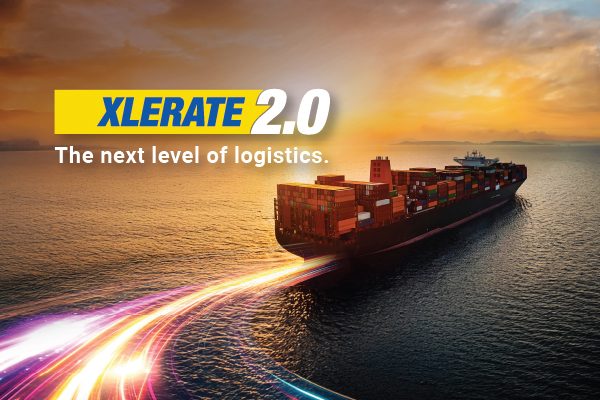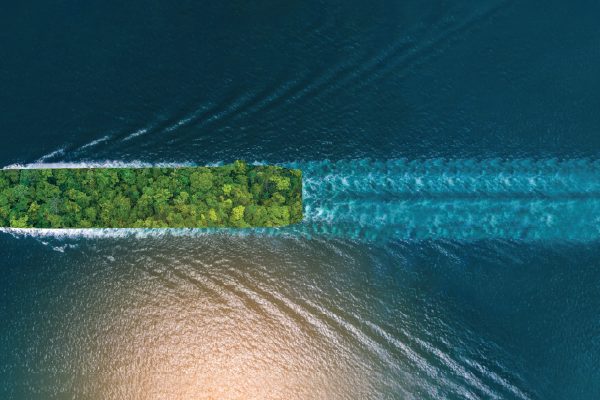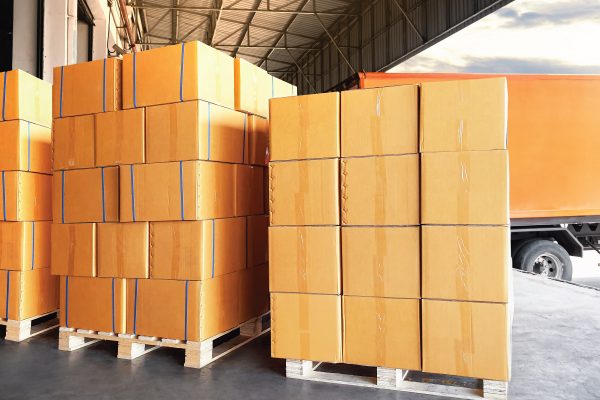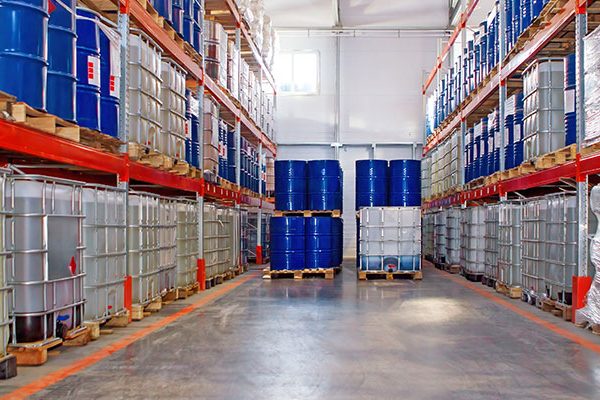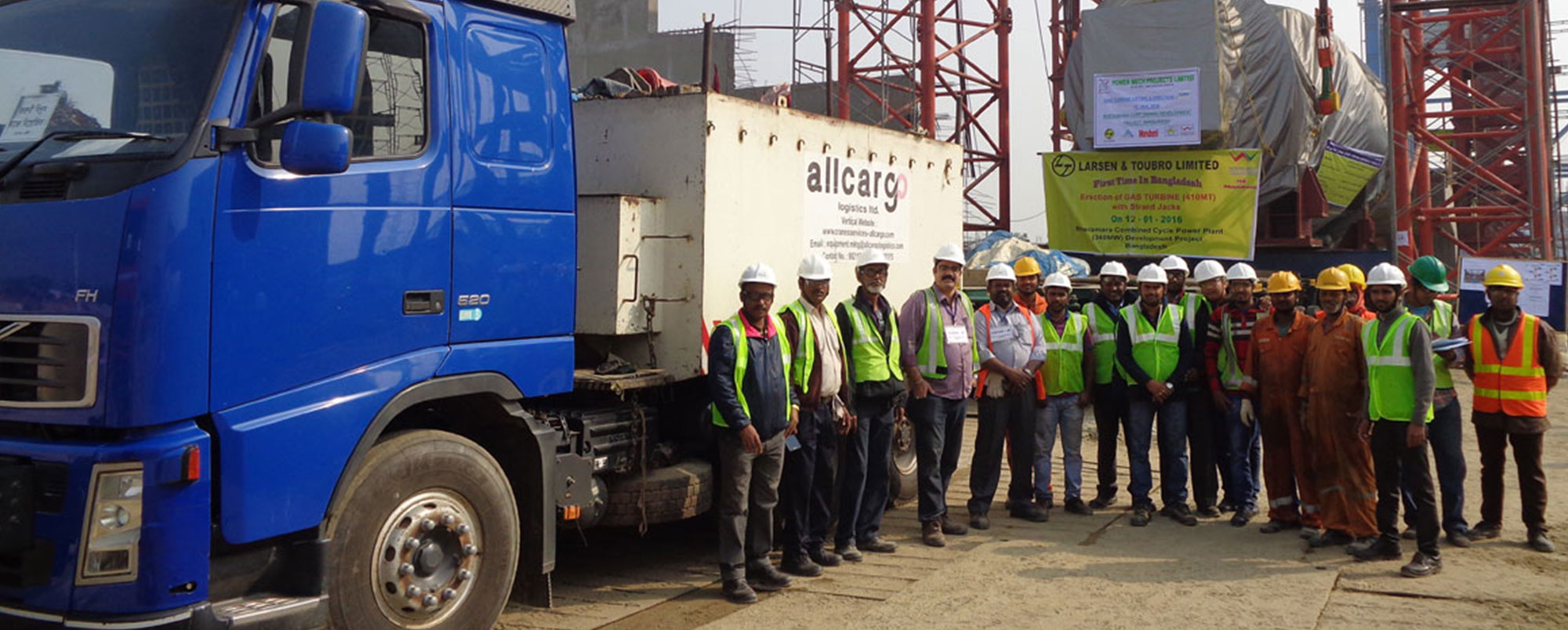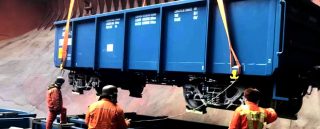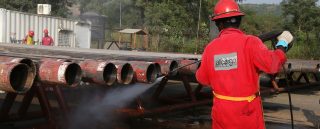Power Partnership Allcargo Logistics helps to establish an engineering giant’s first power project in foreign territory amid unforeseen challenges.
It’s an all-new phase in globalisation. Trade and logistics corridors, earlier unheard of, are opening up. There’s a surge in the cargo volume moving between Asia and South America, Asia and Africa and within Asia, as these markets become hotbeds of the global development story. Despite the appeal, emerging markets have their own set of entry barriers that usually hit cargo movement first. Businesses looking to capitalise this attractive growth opportunity, must be prepared to deal with market forces, such as geopolitical issues, in-country infrastructure gaps, local trade and customs laws, and security lapses.
A large multi-national engineering conglomerate, headquartered in India, faced identical challenges when transporting a cargo volume of 60,000 freight tonnes to set up its first major power project in Bangladesh — a developing country with unique cargo entry barriers. Discover how Allcargo Logistics helped the firm to establish its milestone power project in the face of unforeseen challenges.
Winning the coveted contract to set up a power plant in Bangladesh was a prestigious milestone for Indian engineering giant Larsen & Toubro (L&T). North West Power Generation Company Limited (NWPGCL), the biggest power distributor in Bangladesh, wanted to develop a 360 MW combined cycle power plant in Bheramara, in the Kushtia district, at the banks of the river Padma. The utility distributor envisioned a clean-technology driven, highly efficient power plant. This project was financed by the Japan International Cooperation Agency (JICA) and the engineering, procurement and construction (EPC) contract was awarded to Marubeni Corp in Japan, which in turn sub-contracted it to L&T.
The EPC deal, worth USD 280 million, was much more than a high-valued contract for L&T. It was the company’s first major power project outside India, and an exclusive opportunity to go international with a power project.
Across international borders
The clean power objective necessitated the transport of heavy equipment from many international locations. The engineering firm entrusted Allcargo Logistics with the responsibility to transport plant equipment weighing 60,000 freight tonnes (FRTs) from India, Japan, South Korea and other third countries to the site in Bheramara, Bangladesh.
Monumental challenges
As many as 700 rivers and tributaries flow through Bangladesh, making it a ‘riverine’ country. Most of the country’s land is made of the silt brought in by these rivers! Surface infrastructure is still underdeveloped, which makes water transport the best option for heavy cargo movements in the country. Language is a barrier, as 98 percent of the population speaks the local language, Bangla.
Such country-specific peculiarities posed challenges for Allcargo, as it dealt with moving 60,000 freight tonnes of cargo.
Unavailability of equipment to handle oversized cargo loads
For the first time ever, a single consignment weighing over 60,000 tonnes was making its way into the country. Local freight forwarders and cargo movers did not have specialised equipment to unload the cargo at the Mongla anchorage and transport it further up to the power plant site. This challenge could only be overcome by importing advanced cargo-handling equipment and deploying an expert crew to manage operations.
Stringent customs clearance protocols
Customs laws in Bangladesh are stringent, which required detailed understanding of documentation and policies. Bridging the language barrier and establishing local partnerships also emerged as critical requirements.
Difficulties in river dredging:
The biggest challenge lay in the construction of the jetty at the river bank near the plant site. Cargo movement began during the non-monsoon season when river water levels in Bangladesh experience extreme fluctuations. By the time Allcargo started building the jetty on the river, the water had receded to very low levels, making transportation across the river, impossible. Dredging the river basin was the only solution, but this proved to be a bigger challenge.
As the dredging continued, the water level kept going down. Even after dredging the channel for 90 kilometres, the desired level of water was not achieved. This compelled Allcargo to move the channel deeper into the river basin, making it imperative to address local interests and concerns.
Stringent customs clearance protocols:
Strict customs clearance protocols in Bangladesh resulted in numerous roadblocks in the documentation and approval processes, which needed to be managed efficiently to overcome delays.
Safety concerns:
Safety of the cargo and crew were important, as this was the first time the team was managing the transport of a cargo of such large proportions in foreign soil. These concerns needed to be addressed with reliable security measures.
A multi-tier solution
Dealing with these challenges required a comprehensive solution. Land and water surveys, an out-of-the-box ‘step’ jetty, a synergetic local partnership and high-end equipment and a crew of experts made up Allcargo’s solution for L&T. (See the box for solution details.)
- Land and water surveys
- An out-of-the-box idea:
- A synergetic local partnership
- High-end equipment and an expert crew
Market-changing impact
The impact of this project goes well beyond meeting SLAs (service level agreements). The uniqueness of the challenges and the manner in which they were addressed has established L&T firmly in a new and emerging market.
- On-time delivery of all heavy-lifts and equipment: Having started in March 2015, the task of plant machinery transportation is nearing completion. So far, 25 barge trips have been made. Five major ships from India and four heavy-lift ships from Korea and Japan have delivered the primary over-dimensional cargo needed to build the plant. Despite all the major hurdles, transportation timelines have not been delayed.
- The Bangladesh market opens up for new players: The success of transporting the equipment to build a power plant in the country amid unprecedented challenges has established the engineering firm as a major EPC player in Bangladesh. Allcargo too has firmed its presence in the country as a logistics supplier of choice.
Until now, the Bangladesh market was dominated by logistics players from China, Thailand and Singapore. Allcargo has effectively overcome the entry barriers and developed the logistics and transportation sector in the country by importing sophisticated equipment, setting up an expert crew and working around the geopolitical, social and cultural challenges. This project reconfirms the fact that with the right logistics support, partner and strategy, establishing a strong foothold in new markets is not a distant reality.




